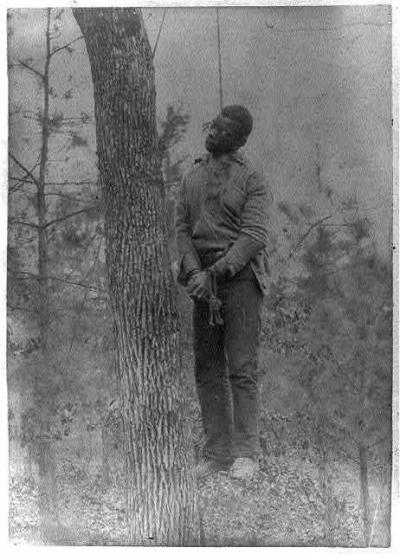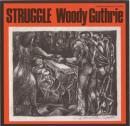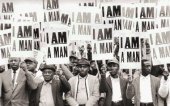Silhouette
Southern gentle lady,
Do not swoon.
They've just hung a black man
In the dark of the moon.
They've hung a black man
To a roadside tree
In the dark of the moon
For the world to see
How Dixie protects
Its white womanhood.
Southern gentle lady,
Be good!
Be good!
Flight
Plant your toes in the cool swamp mud.
Step and leave no track.
Hurry, sweating runner!
The hounds are at your back.
No, I didn't touch her.
White flesh ain't for me.
Hurry, black boy, hurry!
Or they'll swing you to a tree.
Lynching Song
Pull at the rope!
O, pull it high!
Let the white folks live
And the black boy die.
Pull it, boys,
With a bloody cry.
Let the black boy spin
While the white folks die.
The white folks die?
What do you mean--
The white folks die?
That black boy's
Still body
Says:
NOT I.
Southern gentle lady,
Do not swoon.
They've just hung a black man
In the dark of the moon.
They've hung a black man
To a roadside tree
In the dark of the moon
For the world to see
How Dixie protects
Its white womanhood.
Southern gentle lady,
Be good!
Be good!
Flight
Plant your toes in the cool swamp mud.
Step and leave no track.
Hurry, sweating runner!
The hounds are at your back.
No, I didn't touch her.
White flesh ain't for me.
Hurry, black boy, hurry!
Or they'll swing you to a tree.
Lynching Song
Pull at the rope!
O, pull it high!
Let the white folks live
And the black boy die.
Pull it, boys,
With a bloody cry.
Let the black boy spin
While the white folks die.
The white folks die?
What do you mean--
The white folks die?
That black boy's
Still body
Says:
NOT I.
envoyé par Bernart Bartleby - 22/12/2014 - 22:47
Langue: finnois
Traduzione finlandese / Finnish translation / Traduction finnoise / Suomennos: Juha Rämö


KOLME LAULUA LYNKKAUKSESTA
Siluetti
Älä pyörry,
etelän hempeä nainen.
Ne hirttivät juuri mustan miehen
kuutamon hämärässä.
Ne hirttivät mustan miehen
tienvarren puuhun
kuutamon hämärässä.
Jotta maailma voisi nähdä,
kuinka etelä suojelee
valkoista naiseuttaan.
Pysy tyynenä,
etelän hempeä nainen,
pysy tyynenä!
Pako
Upota varpaasi suon kylmään mutaan.
Astu jälkeä jättämättä.
Kiirehdi, hiestä märkä pakenija!
Verikoirat ovat kintereilläsi.
Ei, en koskenut häneen.
Valkoinen liha ei ole minua varten.
Pidä kiirettä, musta poika, pidä kiirettä
tai ne ripustavat sinut puun oksaan!
Lynkkauslaulu
Vetäkää köydestä!
Vetäkää se korkealle!
Antakaa valkoisen väen elää
ja mustan pojan kuolla.
Vetäkää, pojat,
verinen huuto huulillanne.
Antaa mustan pojan sätkiä,
kun valkoinen väki kuolee.
Valkoinen väki kuolee?
Miten niin
valkoinen väki kuolee?
Sen mustan pojan
äänetön ruumis
sanoo:
EN SE OLLUT MINÄ.
Siluetti
Älä pyörry,
etelän hempeä nainen.
Ne hirttivät juuri mustan miehen
kuutamon hämärässä.
Ne hirttivät mustan miehen
tienvarren puuhun
kuutamon hämärässä.
Jotta maailma voisi nähdä,
kuinka etelä suojelee
valkoista naiseuttaan.
Pysy tyynenä,
etelän hempeä nainen,
pysy tyynenä!
Pako
Upota varpaasi suon kylmään mutaan.
Astu jälkeä jättämättä.
Kiirehdi, hiestä märkä pakenija!
Verikoirat ovat kintereilläsi.
Ei, en koskenut häneen.
Valkoinen liha ei ole minua varten.
Pidä kiirettä, musta poika, pidä kiirettä
tai ne ripustavat sinut puun oksaan!
Lynkkauslaulu
Vetäkää köydestä!
Vetäkää se korkealle!
Antakaa valkoisen väen elää
ja mustan pojan kuolla.
Vetäkää, pojat,
verinen huuto huulillanne.
Antaa mustan pojan sätkiä,
kun valkoinen väki kuolee.
Valkoinen väki kuolee?
Miten niin
valkoinen väki kuolee?
Sen mustan pojan
äänetön ruumis
sanoo:
EN SE OLLUT MINÄ.
envoyé par Juha Rämö - 29/6/2020 - 14:10
×
![]()








Versi di Langston Hughes, in seguito nelle raccolte “One-Way Ticket” del 1949 e “The Collected Poems of Langston Hughes” del 1994
Si tratta, nell’intenzione espressa dell’autore, di un vero e proprio “lament” articolato in tre brevi canti.
Solo il primo, “Silhouette” (che fino a ieri compariva come brano a se stante), mi consta che sia stato successivamente messo in musica per voce e pianoforte da Serge Hovey (1920-1989), compositore americano allievo di Arnold Schönberg e Hanns Eisler.
Molti dei linciaggi di cui erano vittime gli afroamericani negli USA fino a non molti decenni fa erano “motivati” da presunte violenze sessuali ai danni di donne bianche. In realtà il sistema segregazionista rendeva assolutamente impossibile ogni relazione, tanto meno affettiva o sessuale, tra un nero e una bianca. Ogni “negro” sapeva bene che anche solo guardare o rivolgere la parola ad un bianca avrebbe potuto costargli molto caro. Piuttosto, così come normalmente accadeva che il padrone bianco si togliesse le voglie con le sue schiave negre, meglio se giovanissime, così poteva succedere che un bello “stallone” nero facesse gola a qualche “signora”. In questo caso spesso il poveretto era fottuto: se accettava le avances rischiava di essere linciato, se invece si negava l’esito poteva essere identico perché la troia, inviperita dal rifiuto, avrebbe potuto gridare comunque allo stupro. E così spesso accadeva, in un sistema in cui i neri, ridotti a cose o ad animali, erano più di chiunque altro alla mercè della violenza, della grettezza, della perversione, della malvagità, dell’ignoranza, della follia, della miseria dei bianchi. (da Modern American Poetry)
“Flight”
Scene di caccia nelle paludi del sud. La preda è un negro accusato di aver stuprato (o anche solo sfiorato o parlato a) una donna bianca. Tutti sanno che non è vero, lo sa il fuggiasco, lo sanno i suoi inseguitori, la sa la sua presunta vittima. Ma i bianchi avevano bisogno di un pretesto per divertirsi e questo è il loro passatempo, la loro verità, la loro giustizia. Non c’è altro da fare che correre, ragazzo, cercando di lasciare meno impronte possibili, che i bloodhounds già ansimano dietro di te...
Mi sono subito venute in mente Lost John di Sonny Terry e Old Riley (Hey Rattler) di Leadbelly...
“Lynching Song”
L’epilogo del canto, dove il lamento diventa trionfo. E non è la mob dei bianchi assassini a trionfare ma il corpo martoriato del negro linciato: “Chi è ch’è morto?!? Non certo io, siete voi tutti ad essere morti! Il vostro odio, la vostra crudeltà, la vostra brutalità, la vostra stupidità vi ha uccisi! Io, quello che voi credete di aver ben bene ammazzato, io non sono mai stato così vivo!”
Canto di Resurrezione e di Liberazione.